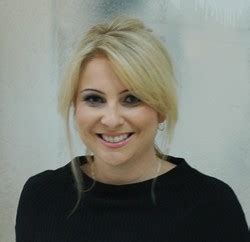A Quote by Libba Bray
For once, Evie didn’t know what to say. She hadn’t really thought of her uncle as very human. He was more like a textbook who occasionally remembered to put on a tie. But it was clear that he was, indeed, human, with a deep wound named Rotke.
Related Quotes
A wound in the soul, coming from the rending of the spiritual body, strange as it may seem, gradually closes like a physical wound. And once a deep wound heals over and the edges seem to have knit, a wound in the soul, like a physical wound, can be healed only by the force of life pushing up from inside. This was the way Natasha's wound healed. She thought her life was over. But suddenly her love for her mother showed her that the essence of life - love - was still alive in her. Love awoke, and life awoke.
She never told her love, but let concealment, like a worm 'i th' bud, feed on her damask cheek. She pinned in thought; and, with a green and yellow melancholy, she sat like Patience on a monument, smiling at grief. Was not this love indeed? We men may say more, swear more; but indeed our shows are more than will; for we still prove much in our vows but little in our love.
Once she was certain, she didn't waiver. I had to make her stop for water or a bite to eat. She obeyed, but she was restless. As clear as if she spoke to me, she was saying, "Very well, I know you want to keep my strength up, but scent fades, you know!" And I'd say, "I know, girl, buy you're what I have and I'm going to take care of you.
She remembered that once, when she was a little girl, she had seen a pretty young woman with golden hair down to her knees in a long flowered dress, and had said to her, without thinking, "Are you a princess?" The girl had laughed very kindly at her and asked her what her name was. Blanche remembered going away from her, led by her mother's hand, thinking to herself that the girl really was a princess, but in disguise. And she had resolved that someday, she would dress as though she were a princess in disguise.
I have four daughters, the eldest is 19, the youngest is 12, and I watched all of them journey into motherhood. Motherhood is very deep. It starts when you're very, very young. Now, my 12 year old comes in, wants to put me to bed. And she'll, you know, put her hand on my forehead and say the prayer with me. As for years I've done for her! It's almost like a very beautiful, natural transition.
As a woman, she [Penelope Cruz] obviously has changed as she has become an adult. But, as an actress, I actually might say that she has not changed that much. And she has something great, especially in comedy, and she hasn't been exploited as much as she could be in comedy, but particularly in that mix between comedy and drama. She's got a very special quality about her. You can place her in very extreme situations, especially very painful situations, in terms of how her character interprets it. And sometimes, the deeper and more human that pain is, the better she is at it.
Once upon a time there was a girl who wanted to put her fist through a mirror. She would tell everyone it was so that she could see what was on the other side, but really, it was so that she wouldn't have to look at herself. That, and because she thought she might be able to steal a piece of glass when no one was looking, and use it to carve her heart out of her chest.
No one had ever said anything like that to Evie. Her parents always wanted to advise or instruct or command. They were good people, but they needed the world to bend to them, to fit into their order of things. Evie had never really quite fit, and when she tried, she’d just pop back out, like a doll squeezed into a too-small box.
What art should be about,' they will say, 'is revealing exquisite and resonant truths about the human condition.' Well, to be honest - no, it shouldn’t. I mean, it can occasionally, if it wants to; but really, how many penetrating insights to human nature do you need in one lifetime? Two? Three? Once you’ve realised that no one else has a clue what they’re doing, either, and that love can be totally pointless, any further insights into human nature just start getting depressing really.
And yet, standing behind her son, waiting for the traffic light change, she remembered how in the midst of it all there had been a time when she'd felt a loneliness so deep that once, not so many years ago, having a cavity filled, the dentist's gentle turning of her chin with his soft fingers had felt to her like a tender kindness of almost excruciating depth, and she had swallowed with a groan of longing, tears springing to her eyes.
He was trying to be everywhere at once," the redhead told the human. "Trying to make sure Alice had nothing to do, actually." He shook his head as he looked at the tiny blackhaired girl. "Alice doesn‘t need anyone‘s help." The vampire named Alice shot a glare at Jasper. "Overprotective fool," she said in her clear soprano voice. Jasper met her stare with a half smile, seeming to forget for a second that I existed.
Her thoughts ran away to her girlhood with its passionate longing for adventure and she remembered the arms of men that had held her when adventure was a possible thing for her. Particularly she remembered one who had for a time been her lover and who in the moment of his passion had cried out to her more than a hundred times, saying the same words madly over and over: "You dear! You dear! You lovely dear!" The words, she thought, expressed something she would have liked to have achieved in life.




































